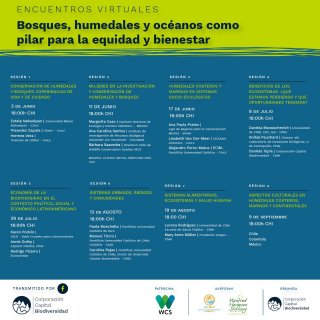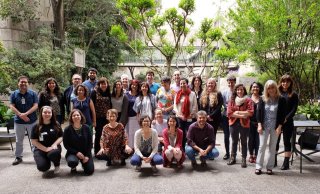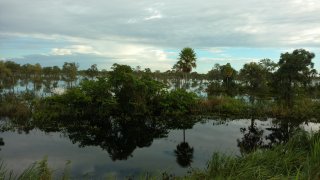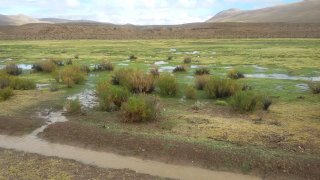Climate and Biodiversity Protection in Latin America and the Caribbean
Regional cooperation and knowledge exchange in the "LAC Initiative”
The Latin America and Caribbean (LAC) Initiative brings together scientists, decision-makers, local organizations and communities to promote the exchange of knowledge and experiences, creating new impulses for the protection of biodiversity and climate. Together they discuss the importance of oceans, forests and wetlands for health, economy and prosperity. Thriving for new solutions to strengthen nature and climate protection on political and social levels across Latin America, they aim to improve decision-making processes on the ground of scientific findings, practical experiences, and traditional knowledge in combination with gender aspects. The foundation Manfred-Hermsen-Stiftung supports the Chilean NGO Corporación Capital Biodiversidad in the implementation of this project.
Background
More than 50% of the planet's biodiversity is concentrated in Latin America and the Caribbean. But this wealth of biodiversity is under severe threat and requires a profound shift in policies and the administration of land and natural resources in order to be protected. Fostering a better collaboration between the scientific community, local actors and policy makers has the potential to address the causes and consequences of species extinction and climate change.
In preparation to the UN Climate Change Conference COP25 2019 in Chile, the LAC Initiative was launched and an inception seminar with over 250 participants organized, including representatives from more than 25 institutions and experts from eight countries. With the discussions formed and inputs received concerning the challenges of climate change and ecosystem loss, and opportunities for an adapted and sustainable development, it resulted in the creation of the policy brief "Biodiversity, Gender and Climate Change – Latin America and the Carribean Initiative".
The project
Corporación Capital Biodiversidad conducts a series of virtual conferences under the theme "social and ecological implications of intact ecosystems as pillars of the common good" from May to September 2021. The project continues the dialogue initiated in 2019 between key Latin American stakeholders from science, politics, local governments and indigenous groups.
In the conferences, experts discuss the value of biodiversity, forests, wetlands and oceans in the global and regional context. Participants exchange about good practices for sustainable use of ecosystems and discuss fundamental questions and corresponding solutions for mayor tasks of the future, such as: How can we create better ways to go about land management and the conservation of species? How are we going to enhance local capacities accordingly? How can we preserve cultural identities and ensure that future developments are socially just and sustainable?
The long-term goal is to change current patterns of economic growth and the use of natural resources in order to conserve biodiversity, reduce greenhouse gas emissions, and ensure that nature and the resources nature provides for us are sustainably managed.
List of conferences
26.05.2021: Women in Research and Protection of Wetlands, Forests and Nature
03.06.2021: Protection of Wetlands and Forests. Experiences from everyday life.
17.06.2021: Coastal and Marine Wetlands in Social-Ecological Systems.
08.07.2021: Benefits of Ecosystems: What are we losing and what opportunities do we have?
29.07.2021: Economics of Biodiversity in the Political, Social and Economic Context of Latin America.
12.08.2021: Urban Systems, Risks and Communities.
19.08.2021: Food, Ecosystems and Health
09.09.2021: Cultural Aspects in Marine, Coastal and Inshore Wetlands.





